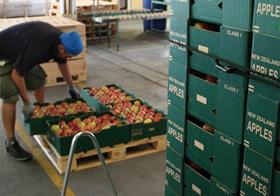
New Zealand’s opposition party has announced that it plans to bring cohesiveness to the country’s pipfruit industry if it wins power at the next elections.
The Labour Party’s agriculture spokesperson Damien O’Connor said the current government was “standing blithely by” while New Zealand’s apple and pear industry withered, “hamstrung by division and disunity”.
“The failure to reach consensus on an export strategy for apples going to Australia has destroyed an opportunity to manage and develop a potentially lucrative market at a time of great need,” he said.
“If the current dire circumstances facing growers has failed to bring unity, it is unlikely we will see change any time soon. It is now up to central Government to show the leadership the sector desperately needs.”
Mr O’Connor’s comments came as the Labour Party released its agriculture policy late last week, which include steps to ease exchange rate pressures on exporters, and tighter restrictions on foreign companies buying New Zealand farmland.
The statement has drawn fire, however, from ACT New Zealand, a minor political party dedicated to free market economics.
“The pipfruit industry works cohesively and in unity when dealing with hard to access markets such as Taiwan, USA and China without the need for regulations. To suggest otherwise is completely disingenuous,” said ACT horticultural spokesman John Thompson.
ACT argues the financial troubles facing New Zealand’s apple business are purely down to the poor Braeburn returns in Europe, and Mr Thompson said growers would adapt to the market without governmental help.
“What the apple industry requires is a quicker transformation to redder and sweeter apples suitable for the Asian and Middle Eastern markets – and less reliance in the traditional markets,” he stated.



